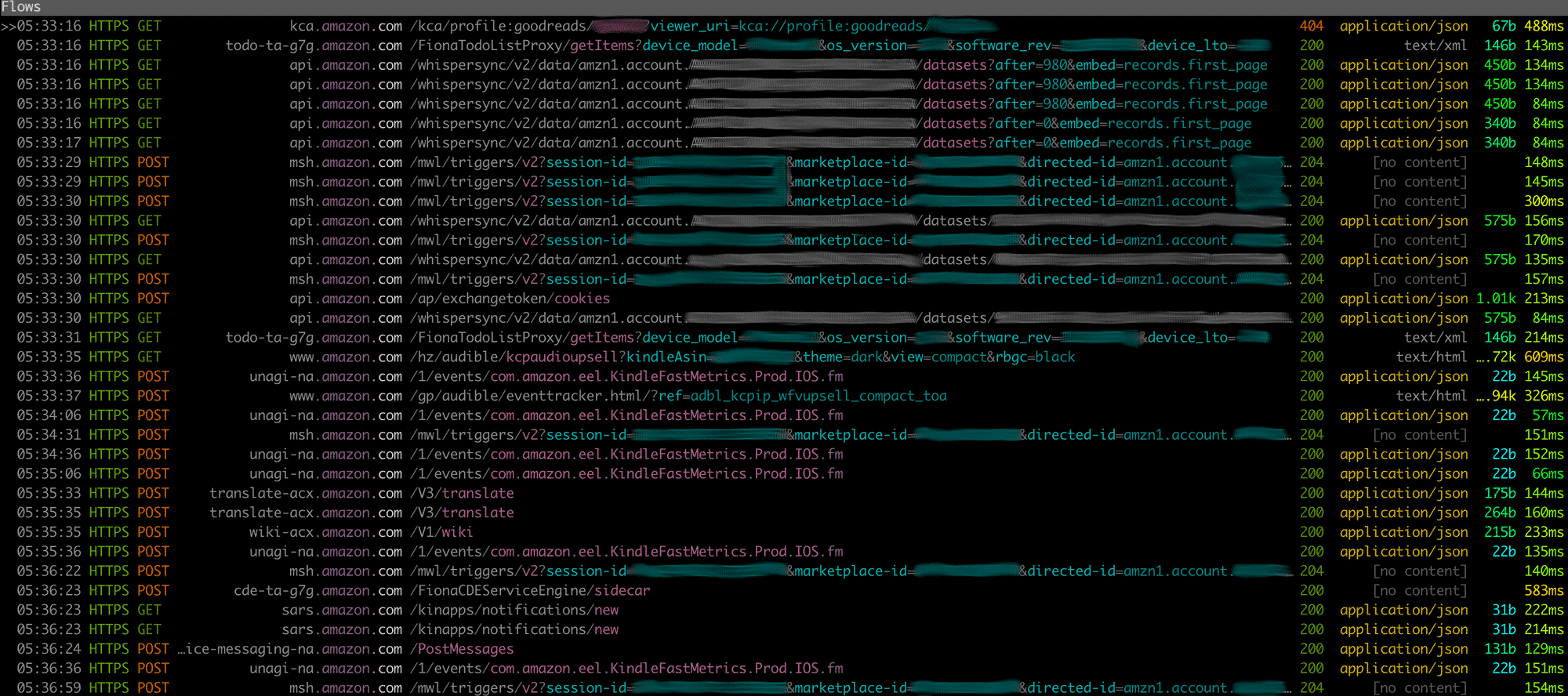The Amazon Kindle e-reader and their Android apps collect a ton of data from readers. Highlighting or tapping any word will send the requests with the text to Bing Translate and Wikipedia, as well as back to Amazon. Kindle services leverage reading data to offer some nice features that traditional books can’t offer: maintaining bookmarks and notes between devices, keeping all devices synced with the last read page, and more. It also shows ads and recommendations for next books to read on the kindle. There is tons of data they collect.
If you open up a random book, flip a few pages and close the book, over 100 different requests are sent to Amazon. Every page sends the time a page was opened (when you turn to a new page, a timestamp is generated). The first character on the page (This might be something like character 7705 in the book, which is the exact location). The last character on the page and If the page is images or text. Amazon also sends personal information multiple times a day, such as country of residence, attempt to get the IP address on the local network, device information and version (screen sizes, make and model (iphone vs. Android vs. Kindle), software version, GoodReads account details and device orientation (portrait vs. landscape).
If you want to be as secure as possible and opt out of all of Amazons tracking on your Kindle by visiting Advanced Options > Privacy or in the device management console in your account on amazon.com. Kindles have airplane mode and allow you to load books onto them using the USB connection. The battery also lasts somewhat longer if you use them that way. Amazon directly offers a “Download & Transfer via USB” option for ebooks you purchase in their store, as well — this is a relatively well-supported use case. If you need to run a firmware update, you can visit the software and downloads page, and sideload the update, so you don’t need to do it via WIFI.
Michael Kozlowski is the editor-in-chief at Good e-Reader and has written about audiobooks and e-readers for the past fifteen years. Newspapers and websites such as the CBC, CNET, Engadget, Huffington Post and the New York Times have picked up his articles. He Lives in Vancouver, British Columbia, Canada.


